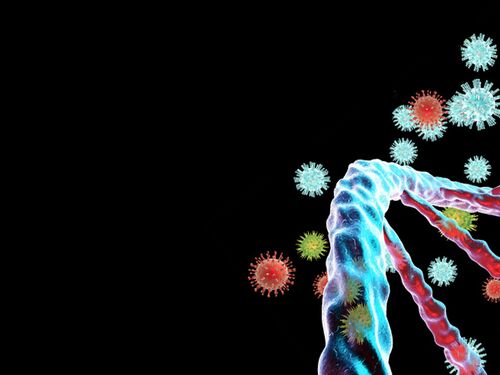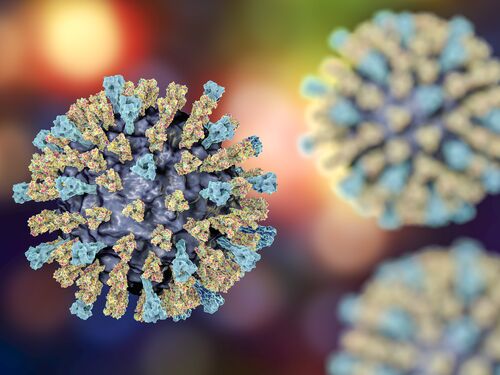Is there a link between infections and cancer?
Based on Science
There is strong evidence that certain infections play a role in the development of some types of cancer.
Last update July 1, 2022
Some pathogens cause infections that can lead to cancer.
Infections are caused by pathogens that enter your body. Pathogens include viruses, bacteria, protozoa, and parasitic worms (also known as helminths) that can make us sick.
Some infections can cause specific types of cancer. Cancer occurs when some of the cells in your body grow out of control, and it may spread to other parts of your body. Infections can cause certain cancers in a variety of ways including by affecting the genes in your cells, by causing inflammation in your body, or by affecting how your immune system works.
The pathogens that cause the majority of currently known infection-related cancers are:
HPV infections can lead to cancers of the throat, anus, cervix, vagina, vulva, and penis. The hepatitis viruses can cause liver cancer, and Helicobacter pylori can cause stomach cancer.
Knowing the link between infections and cancer provides us with opportunities to prevent some cancers
Understanding that some cancers are caused by HPV and hepatitis B virus infections has led to the ability to prevent cancer by using vaccines that prevent infections. For hepatitis C virus and Helicobacter pylori, treatments exist to cure these infections, which can stop cancer from developing later.
HPV is a common virus that is spread by close contact, usually through sex. Almost everyone who is sexually active will be exposed to HPV in their lifetime. HPV infections currently cause more than 35,000 cases of cancer among men and women each year in the United States. When given before a person becomes sexually active, the current HPV vaccines can prevent 90 percent of these cases by stopping HPV infections that lead to cancer. This vaccine is recommended for all children starting at ages 11-12.
Worldwide, hepatitis B virus is the most common cause of both chronic hepatitis and hepatocellular carcinoma, the most common form of liver cancer. The virus can be transmitted from an infected mother to her child at birth, from contact with infected blood, or from unprotected sex with an infected partner. More than half of the 660,000 new cases of liver cancer (hepatocellular carcinoma) diagnosed in 2018 around the world were caused by hepatitis B virus. Vaccination provides protective immunity against the virus and prevents its complications, including chronic infections, cirrhosis, and hepatocellular carcinoma. Countries that have adopted universal infant and newborn hepatitis B virus immunization have seen marked reduction in the prevalence of hepatitis B infection in their populations.
Hepatitis C virus can also lead to liver cancer. It was responsible for more than 20% of new cases of hepatocellular carcinoma in the world in 2018. Hepatitis C virus is primarily spread from person to person by injection drug use, and, less commonly, through sexual contact or from mother to child during birth. There is no vaccine to prevent a hepatitis C virus infection, but antiviral medicines can cure infection and thereby help prevent the later development of cancer. Treatment is especially effective at preventing liver cancer if the infection is cured before the virus has done substantial damage to the liver. Hepatitis C virus infections often have no symptoms, so all adults should get tested for hepatitis C virus and should get treated if found to be infected.
In 2018, Helicobacter pylori was responsible for more than 800,000 new cases of stomach cancer in the world or more than 75% of all new cases diagnosed that year. Helicobacter pylori infections are widespread. The bacteria are most likely spread through contaminated food and water and through mouth-to-mouth contact. Most infections do not cause illness, but in some people infection causes inflammation of the stomach’s lining. Infection can also cause ulcers in the stomach and upper portion of the small intestine. Helicobacter pylori infections can be cured with antibiotics. A randomized control study in China, where stomach cancer and Helicobacter pylori infections are both common, assigned people with Helicobacter pylori infections to one of two groups: one who received antibiotic treatment for the infection and the other who did not. Fifteen years later, fewer cases of stomach cancer were diagnosed in the group who had been treated with antibiotics.
Scientists continue to study the link between infections and cancer.
HPV, hepatitis B and C viruses, and Helicobacter pylori account for more than 90% of the known infection-related cancers diagnosed worldwide each year. Other pathogens, including some parasitic worms, can also cause or increase the risk of some cancers. Overall, infections are believed to lead to about 13% of all new cancer cases each year (excluding non-melanoma skin cancers).
Scientists are studying whether infections by pathogens may play a role in other types of cancer, such as ovarian cancer. Research is also ongoing to create additional vaccines with the potential to prevent other types of infections that may lead to cancer. For example, an early-stage clinical trial is underway to prevent Epstein-Barr virus infections. That virus typically causes mononucleosis but has also been linked with nasopharynx cancer, Hodgkin lymphoma, Burkitt lymphoma, and possibly stomach cancer.
ADDITIONAL RESOURCES
More like this
Events
Right Now & Next Up
Stay in the loop with can’t-miss sessions, live events, and activities happening over the next two days.
TRB Annual Meeting | January 11 - 15, 2026
January 11 - 15, 2026 | The TRB Annual Meeting brings together thousands of transportation professionals worldwide for sessions across all modes and sectors.




